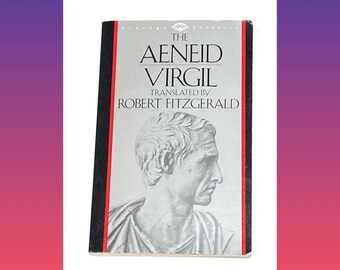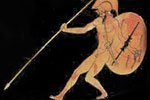

Translation of the Aeneid in most of the twentieth century was not much better, except that the Victorian faux antique diction gave way to the over-the-top, testosterone-driven language of Ezra Pound-language that often paid little attention to what the text actually said.

Due to the sentimentality about Augustan Rome, translation of the Aeneid and other texts also suffered from avoidance of literal accuracy whenever it cast Rome in a bad light-so rape became romance, slaves became servants. In the nineteenth century, academic philologists took over the field and tipped the balance toward painful literal accuracy and against the pleasures of poetry. The earliest translators of these texts, such as Pope and Dryden, valued good poetry over literal accuracy. Classics for All, a non-profit British institution, is doing a wonderful job of expanding interest in and access to Greek and Latin literature for students traditionally denied the opportunity to engage in such study by the class, race and gender biases of the British academic establishment.Īs part of this revival, a growing number of translators have recently taken on the most significant texts.

Public universities, such as the University of Vermont, may be dropping classics departments, but interest is surging among home-schooling parents, private schools, and some religious colleges and universities. Whether as a reaction to the critics or not, there is also renewed interest in some quarters in ancient Roman and Greek texts. Some would go even further-a Stanford University classics professor, Walter Scheidel, recently stated about classical studies that “I don’t think it should exist as an academic field.” As just one example, Oxford had a heated public debate last year about removing both books from its second-year curriculum. You may not see Virgil’s Aeneid or Homer’s Iliad on as many readings lists any more either. One of the few areas of common ground between the old guard and the new guard is distaste for Catholicism, so do not expect to see Prudentius, Corippus or Aldhelm on curricula any time soon. The general intentions of the new generation of classicists are clear, but the specifics of their vision are not. French departments do not stop teaching French literature after Moliere and Racine, Italian departments do not stop teaching Italian literature after Dante and Petrarch, so why do almost all classics departments feel they have no duty to study and teach Latin literature after Juvenal, Martial and Seneca? The strangeness of this cutoff for the study of a language’s literature still escapes attention in our colleges and universities. Most classicists of that period viewed Late Antique Latin poetry as degenerate, and simply did not study it or teach it. Hatred of Catholicism was a standard failing of the British elite through the nineteenth and twentieth centuries, and classicists were no different. The dissolution of the Roman Empire was painful for British classicists not only because of the parallels to their own nation’s international decline, but because the literature became increasingly Catholic. Their worldview also tended to incorporate strong emotional connections between the Roman Empire and their British Empire, which is why they focused on the perceived glory days of the Augustan era, downplayed the repulsive aspects of that era, only grudgingly studied the following century, and then largely ignored the empire’s literature after about 100 AD. Nineteenth- and early twentieth-century British scholars largely defined the field, and they did so in their own image, which included many race, gender and class biases.


 0 kommentar(er)
0 kommentar(er)
